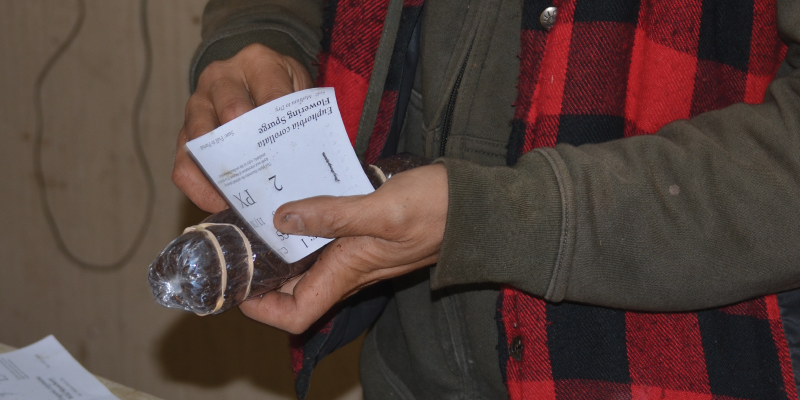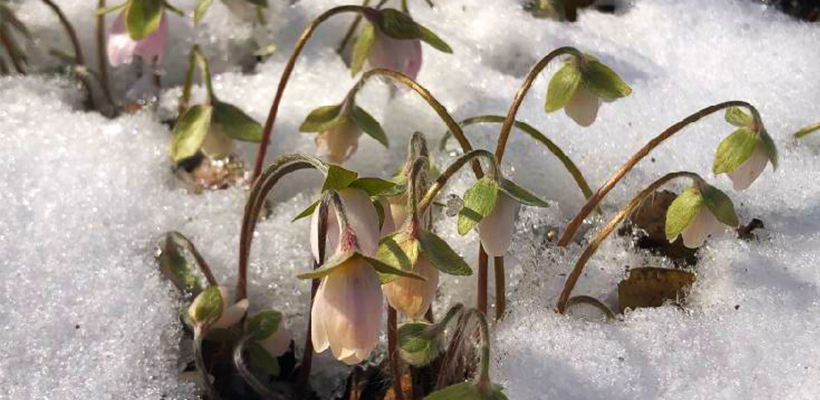April Is Not Too Early to Plant Dormant Bare Roots!
You read it right! Spring dormant bare root plants should be planted as soon as possible – if the ground is not frozen, but the snow is flying, that is a fine time to get them in the ground!
In April as we alert customers that their pre-order of dormant roots are shipping soon, we often get requests to delay shipment because weather has dipped below freezing again, or spring snow flurries are in the forecast. We urge customers to accept bare roots shipped in April.
Unlike greenhouse-grown potted plants, bare root plants can and should be planted during cold, spring weather. These plants are dormant. As soon as the ground thaws in our outdoor garden beds here in Southeast Minnesota (usually late-March) we dig them and store them in a walk-in cooler to keep them dormant. True, it’s not fun to be gardening in cold conditions, but as long as the ground has thawed and you can dig a hole, that is when you should install dormant roots. They will emerge, on schedule, in their new home when soils warm up and thus experience less transplant-shock than if they went from our 35 degree cooler into your warm May or June weather.
If your newly-planted roots emerge, and then a cold spell of below-freezing nights and/or snow happens, native plants are well-suited for those normal spring conditions and should not experience any noticeable hardships. Remember, our bare roots are grown outside in Minnesota, so they are used to being cold in April.

If you ordered later in the season and we had to ship your plants in May, they may have some new growth, which will straighten out as the plant matures. Our bare-root plants will arrive with a root planting depth photo printed on the bag label. These photos illustrate the optimal depth and orientation for planting your roots, and can also be found at prairiemoon.com on each species page.

What flowers are pictured at the top of this post? I would like to know of super early natives for the queen bumblebees